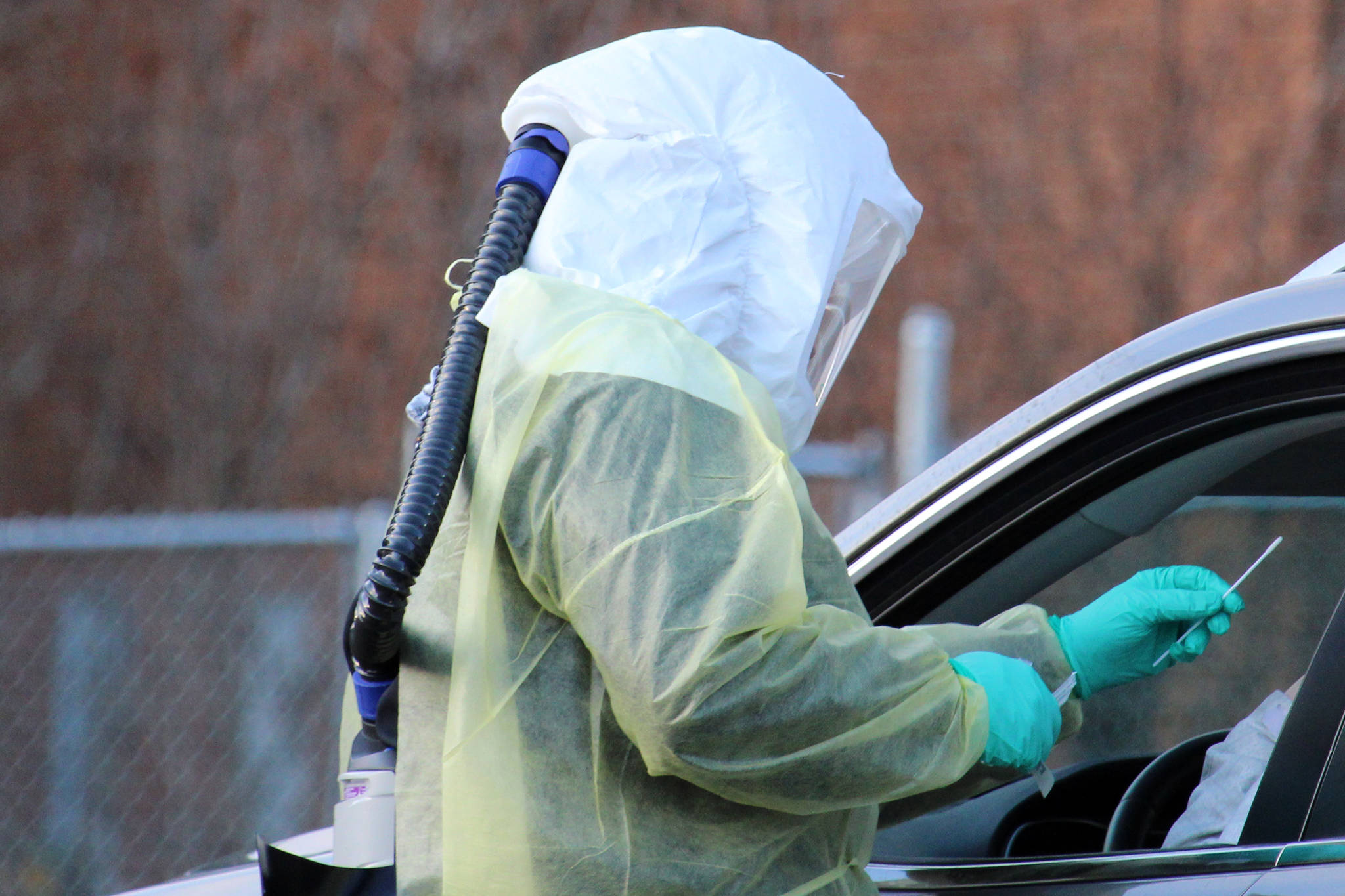The state health department announced a virus variant first identified in the United Kingdom has been confirmed in Alaska for the first time.
An Anchorage resident who tested positive for COVID-19 last month was infected with a variant strain of SARS-CoV-2, the virus that causes COVID-19, known as B1.1.7, Alaska Department of Health and Social Services said in a news release on Tuesday. So far, there is no evidence indicating the two authorized COVID-19 vaccines are not effective against three identified variants, including B1.1.7, according to the state.
U.K. Prime Minister Boris Johnson has publicly said the variant may be more deadly; however, Dr. Joe McLaughlin, state epidemiologist, said that remains uncertain.
“As more information becomes available on that front, we’ll certainly let everyone know,” McLaughlin said.
Additionally, according to the Centers for Disease Control and Prevention, there is no evidence of a difference in clinical outcomes associated with B1.1.7. or other identified variants of the virus, according to the Centers for Disease Control and Prevention. However, there is evidence the variant identified in Alaska is more easily spread.
The person infected with the variant had recently visited a state where the variant had already been detected, according to the state health department.
After returning home, the person first experienced symptoms on Dec. 17, was swabbed on Dec. 20, and received a result on Dec. 22, according to the state. The person isolated after being notified of the positive result, according to contact tracers. The individual lived with one other person who also became sick, tested positive and was successfully isolated, according to the state. Both individuals have since recovered.
“The two patients remained in isolation and stated that they did not have contact with others,” said Dr. Anne Zink, the state’s chief medical officer, in the release. “We are hopeful that transmission of this particular variant stopped with these two individuals, but we will very likely detect the variant strain again soon.”
Zink clarified during a Tuesday afternoon news conference that the second patient has not yet been confirmed to have been infected with the variant but that it is likely.
The variant sample was first screened by the Alaska State Virology Laboratory in Fairbanks on the same day of test collection, Dec. 20, and was found to be missing the spike gene, indicating it was a possible variant, according to the state.
A change in the spike protein on the surface of the virus changes the way the virus binds with and enters host cells, McLaughlin said during the briefing. That is among the factors that make the variant spread more quickly, he said.
Additionally, state health officials said people infected with the virus variant seem to have higher viral loads in general.
The sample ultimately confirmed to be the variant was part of a group of over 300 specimens with spike gene target failures that have been sequenced over the past three weeks to examine viral genomes for variants, a process that normally takes about a week to analyze roughly 100 genomes.
“Sequencing is an important tool to keep track of coronavirus variants circulating in Alaska,” said chief of the Alaska Public Health Laboratories Dr. Jayme Parker in the release. “We’ve been keeping up this effort since last spring and are grateful to have strong collaborations with our universities to gain even more sequencing capacity at this time.”
The lab’s initial analysis determined the sample was the B.1.1.7 variant. This finding was then confirmed by a University of Alaska Fairbanks laboratory, according to the state. DHSS notified the CDC Monday that the variant had been found in Alaska, albeit an imported case.
The CDC has warned that this variant could become the dominant strain in the U.S. by late spring and has the potential to drive further increases in infections in coming months. State officials have said in the past that it would be unsurprising for variants of the virus to be present in the state.
“We’re not surprised this variant has been detected in Alaska,” Zink said in the release. “We’ve been sequencing the viral genome from a subset of positive test samples to detect the presence of variants as quickly as possible.”
As of Jan. 25, the Centers for Disease Control and Prevention counted 293 cases of B.1.1.7 in 24 states, according to a CDC webpage that keeps track of COVID-19 variant cases in the United States.
“It’s just a real reminder that the mitigation tools that you do matters,” Zink said during the news conference, adding that she is making a “big ask” for Alaskans to continue to wear masks in public spaces and practice social distancing among other efforts.
Contact Ben Hohenstatt at 907-308-4895 or bhohenstatt@juneauempire.com. Follow him on Twitter at @BenHohenstatt.


